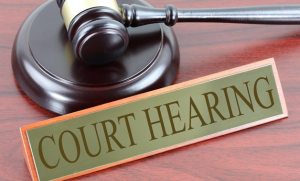INTRODUCTION

Seeking Clarity in the Courtroom: The Crucial Moments of a Summary Judgment Hearing
Motion for summary judgment hearing holds a pivotal role. It is a crucial stage in the litigation process, serving as a means to expedite the resolution of disputes without the necessity of a full-blown trial. The concept of summary judgment revolves around the idea that when there are no genuine issues of material fact, the court can make a decision as a matter of law. This essay explores the significance of summary judgment hearings, their purpose, procedures, and their impact on the legal system.
- PURPOSE OF SUMMARY JUDGMENT HEARINGS
Summary judgment hearings serve multiple essential purposes in the legal system. They provide a mechanism for disposing of cases in an efficient and cost-effective manner. By determining whether there are genuine issues of material fact, the court can save the time, resources, and expenses involved in conducting a full trial. This efficiency is particularly important in alleviating the burdensome caseload of courts, ensuring that the judicial system remains accessible to all.
Moreover, summary judgment hearings offer a way to resolve cases swiftly when the facts and applicable law are clear. This prevents unnecessary delays and, in many instances, brings an end to disputes that may otherwise drag on for years. The importance of this process is underscored by the principle of justice delayed being justice denied.
- PROCEDURES OF SUMMARY JUDGMENT HEARINGS
Navigating the Legal Labyrinth: Inside a Summary Judgment Hearing
The procedure of a summary judgment hearing can be quite intricate, as it involves a thorough examination of the facts and applicable law. The following steps are typically involved in conducting such a hearing:
- Filing the Motion: The process begins with one party (usually the plaintiff or defendant) filing a motion for summary judgment. This motion outlines the relevant facts and legal arguments, demonstrating that there are no genuine issues of material fact.
- Response and Opposition: The opposing party then has an opportunity to file a response, typically referred to as an opposition or memorandum in opposition. In this document, the opposing party must present evidence or arguments to show that there are genuine disputes of material fact.
- Reply: The moving party can respond to the opposition by filing a reply, which may address any new issues raised in the opposition.
- Oral Argument: In some cases, the court may hold an oral argument to allow the parties to present their cases and clarify their positions. This is an opportunity for attorneys to persuade the judge regarding the appropriateness of granting summary judgment.
- Decision: The judge then reviews the motion, opposition, reply, and oral arguments to determine whether summary judgment is appropriate. If the judge finds that no genuine issues of material fact exist, they may grant summary judgment in favor of one party.
III. IMPACT ON THE LEGAL SYSTEM
Summary judgment hearings have a significant impact on the legal system. They reduce the burden on the courts, allowing them to allocate resources more efficiently. By disposing of cases where there are no genuine disputes of fact, courts can prioritize their caseload and ensure that cases with legitimate issues proceed to trial. This streamlining of the judicial process contributes to the overall efficiency of the legal system.Additionally, summary judgment hearings promote fairness and consistency in legal decision-making. They provide a mechanism for judges to assess the strength of a case without the emotional or time pressures of a full trial. This process ensures that cases are decided based on the law and the facts rather than on procedural tactics or the length of the trial.
CONCLUSION
Summary judgment hearings play a vital role in the legal system by providing an efficient mechanism for resolving cases where there are no genuine disputes of material fact. They expedite the litigation process, save time and resources, and contribute to the overall efficiency of the judicial system. While they are not suitable for every case, summary judgment hearings are a crucial tool in ensuring that justice is served promptly and fairly in the legal realm.
